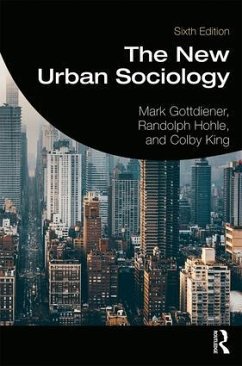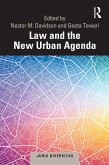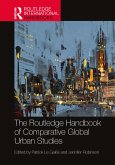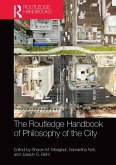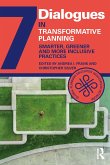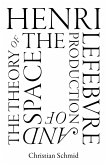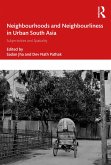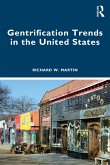Widely recognized as a groundbreaking text, The New Urban Sociology is a broad and expert introduction to urban sociology that is both relevant and accessible to students. Organized around an integrated paradigm, the sociospatial perspective, this text examines the role played by social factors such as race, class, gender, lifestyle, economics, and culture on the development of metropolitan areas, and integrates social, ecological, and political economy perspectives and research into this study. With its unique perspective, concise history of urban life, clear summary of urban social theory, and attention to the impact of culture on urban development, this book gives students a cohesive conceptual framework for understanding cities and urban life.
The sixth edition of The New Urban Sociology is a major overhaul and expansion of the previous editions. This edition is packed with new material including an expansion of the sociospatial approach to include the primary importance of racism in the formation of the urban landscape, the spatial aspects of urban social problems, including the issues surrounding urban public health and affordable housing, and a brand new chapter on urban social movements. There is also new material on the importance of space for social groups, including immigrants and the LGBTQ community, as well as the gendered meanings embedded in social space.
The sixth edition of The New Urban Sociology is a major overhaul and expansion of the previous editions. This edition is packed with new material including an expansion of the sociospatial approach to include the primary importance of racism in the formation of the urban landscape, the spatial aspects of urban social problems, including the issues surrounding urban public health and affordable housing, and a brand new chapter on urban social movements. There is also new material on the importance of space for social groups, including immigrants and the LGBTQ community, as well as the gendered meanings embedded in social space.
Offering a critical sociospatial approach and global contextualization, The New Urban Sociology provides the best overall understanding of the development, spatial forms, and character of multicentered metropolitan areas available to students of U.S. urban development. These perceptive sociologists give central attention to multifaceted push-pull factors in metropolitan growth, center real estate actors' role in structuring growth, assess multiple urban impacts of systemic racism, and connect the conflicts of diverse political coalitions in regularly shaping urbanization processes.
Joe Feagin, Distinguished Professor, Texas A&M University, and author of Racist America (4th ed., Routledge, 2019).
The New Urban Sociology takes students on a journey into that many-splendored thing we call a city. It is an engaging compendium providing a broad history of the city, the wide range of sociological understanding of cities and urban life, and the ways in which cities globally now need to be understood more expansively in terms of the metropolitan region. The authors' sociospatial approach allows a unique multi-layered view of how issues such as racism, affordable housing, social movements, and globalized political economy permeate the places of the metropolitan environment, creating push-pull dynamics affecting all levels of urban living. Cities don't look the same after reading The New Urban Sociology.
--Eugene Halton, Professor of Sociology, University of Notre Dame
Packed with critical insights on diverse urban issues, The New Urban Sociology offers a strong, refreshing alternative to the traditional urban-suburban approach of most urban textbooks. The authors effectively present a multi-dimensional, global take on the socio-spatial processes that drive the urban political economy. A must-read for scholars and students of urbanization.
--Angie Y. Chung, Associate Professor, Sociology, University at Albany
Joe Feagin, Distinguished Professor, Texas A&M University, and author of Racist America (4th ed., Routledge, 2019).
The New Urban Sociology takes students on a journey into that many-splendored thing we call a city. It is an engaging compendium providing a broad history of the city, the wide range of sociological understanding of cities and urban life, and the ways in which cities globally now need to be understood more expansively in terms of the metropolitan region. The authors' sociospatial approach allows a unique multi-layered view of how issues such as racism, affordable housing, social movements, and globalized political economy permeate the places of the metropolitan environment, creating push-pull dynamics affecting all levels of urban living. Cities don't look the same after reading The New Urban Sociology.
--Eugene Halton, Professor of Sociology, University of Notre Dame
Packed with critical insights on diverse urban issues, The New Urban Sociology offers a strong, refreshing alternative to the traditional urban-suburban approach of most urban textbooks. The authors effectively present a multi-dimensional, global take on the socio-spatial processes that drive the urban political economy. A must-read for scholars and students of urbanization.
--Angie Y. Chung, Associate Professor, Sociology, University at Albany

